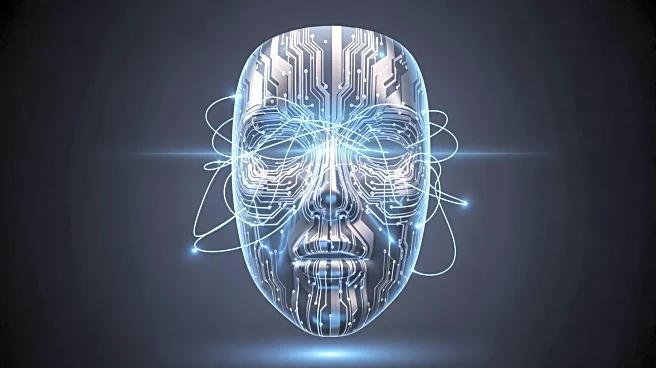What's Happening?
The increasing accessibility of AI technology has led to a surge in the creation of realistic-looking videos and images, known as deepfakes, which pose significant challenges to the perception of reality.
During the conflict between Israel and Iran in June 2025, social media platforms were inundated with fake images and videos depicting destruction in Tel Aviv. This phenomenon highlights the growing threat of digital deception, as AI tools become more widely available to the public, allowing anyone with a smartphone to generate convincing but false content.
Why It's Important?
The proliferation of deepfakes and digital deception has profound implications for society, particularly in the realms of media, politics, and public trust. As AI-generated content becomes more sophisticated, it can be used to manipulate public opinion, spread misinformation, and undermine democratic processes. This raises ethical concerns about the use of AI in creating deceptive content and the potential for misuse by malicious actors. The ability to discern real from fake content is becoming increasingly difficult, posing challenges for media outlets, governments, and individuals in maintaining the integrity of information.
What's Next?
Efforts to combat digital deception are likely to intensify, with governments, tech companies, and civil society groups seeking solutions to identify and mitigate the impact of deepfakes. This may involve developing advanced detection technologies, implementing stricter regulations on AI usage, and promoting digital literacy among the public. Stakeholders will need to collaborate to address the ethical and legal challenges posed by AI-generated content, ensuring that technological advancements do not compromise societal values and trust.
Beyond the Headlines
The rise of AI-driven digital deception could lead to long-term shifts in how information is consumed and trusted. As the line between reality and fiction blurs, there may be increased demand for verification services and technologies that can authenticate content. This could also influence cultural norms around media consumption, with individuals becoming more skeptical of the information they encounter online. The ethical implications of AI's role in shaping perceptions will continue to be a topic of debate, as society grapples with balancing innovation and integrity.










